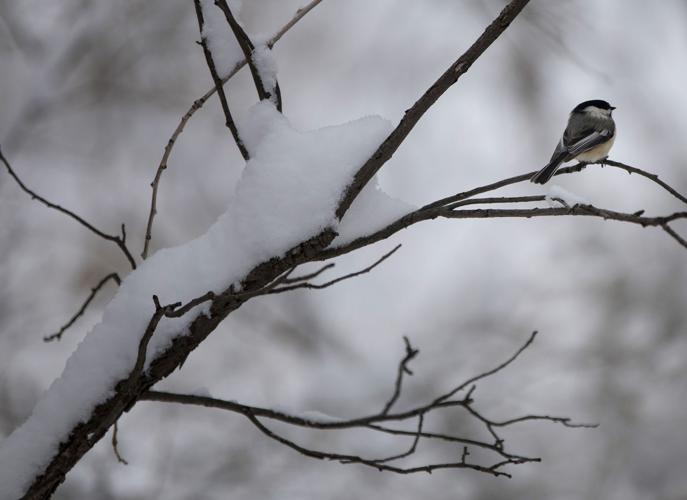Although their brain is just slightly bigger than a pea, chickadees have quite the memory.
A recently released study from the University of Colorado Boulder and the University of Nevada found that this little mountain bird has an incredible spatial memory — discovering nearly 100 genes associated with the chickadee’s ability to recall the locations of objects.
“Some birds must have really good spatial memory for understanding their migratory routes,” said Scott Taylor, director of CU Boulder’s Mountain Research Station. “Chickadees are kind of the poster child for memory in the context of hiding their food and remembering where to find it.”
A full-time resident in the Rocky Mountains, chickadees can remember tens of thousands of caches where they stored away seeds and other pieces of food — important to surviving the Colorado winters.
“We know that really good spatial memory is favorable in places with really harsh winter, in high-elevation sites in the mountains when the winter is long,” said Georgy Semenov, the study’s lead author and a research associate in the CU Department of Ecology and Evolutionary Biology.
Researchers completed the study by fitting multiple hanging feeders with readers that could detect a tag from wild chickadees.
The research team then programmed each gate to only open to certain birds, so that the chickadees had to remember the location of the feeders that would open to them.
The team then measured how many times the chickadees landed on the correct feeders, with the theory that birds with better spatial memory would have a higher accuracy.
As far as the genetic aspect of the study, researchers used blood samples to sequence the entire genome of 162 tagged chickadees, resulting in the largest dataset ever collected for analyzing the genetic basis of chickadee cognitive ability. From there, the team identified 97 genes associated with chickadees’ spatial learning and memory.
“We weren’t even sure if we’d find the relationship between the genome and the behavior, but we did,” Taylor said.
“With this larger dataset, we’ve really been able to hone in on what we think are kind of key regions of the genome that are related to the variation that we see in chickadees’ spatial memory, which is pretty amazing.”
But that great spatial memory may come at a cost in other areas, especially in behavioral flexibility, or the ability to adjust to changes.
“It’s not like it’s always good for a chickadee to have the best spatial memory — there are other strategies that allow you to survive, which includes this behavioral flexibility,” Taylor said.
“We haven’t been able to investigate from a genetics perspective yet, so we don’t have any understanding of the genetics of behavioral flexibility. But we know that in the wild, the chickadees that performed really well on the spatial cognition typically are not as behaviorally flexible, which has interesting potential implications.”
As climate change impacts Colorado winters, it’s hard to predict exactly what that means for the chickadees with high spatial memory, both Taylor and Semenov said.
“We don’t know what the future holds. I think the takeaway from this work is that we can use this population where selection is strong to understand the genetic basis of the trait, but the reality is, we see a lot of variation within the population,” Taylor said.
“As climate changes, organisms, they either have to adapt, they have to move, or they will die. ... To me this high amount of genetic variation across the population we’re studying would suggest that they will be able to adapt.”










(0) comments
Welcome to the discussion.
Log In
Keep it Clean. Please avoid obscene, vulgar, lewd, racist or sexually-oriented language.
PLEASE TURN OFF YOUR CAPS LOCK.
Don't Threaten. Threats of harming another person will not be tolerated.
Be Truthful. Don't knowingly lie about anyone or anything.
Be Nice. No racism, sexism or any sort of -ism that is degrading to another person.
Be Proactive. Use the 'Report' link on each comment to let us know of abusive posts.
Share with Us. We'd love to hear eyewitness accounts, the history behind an article.